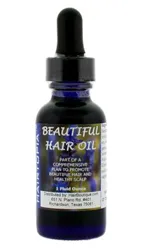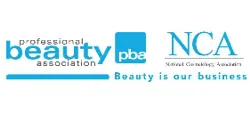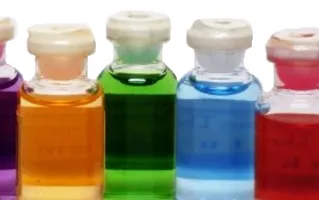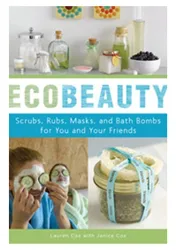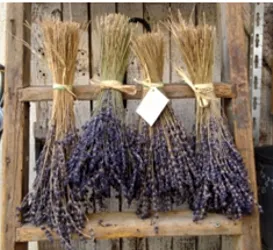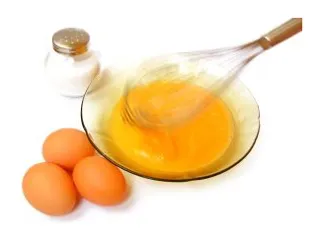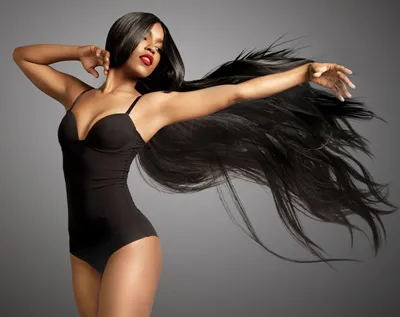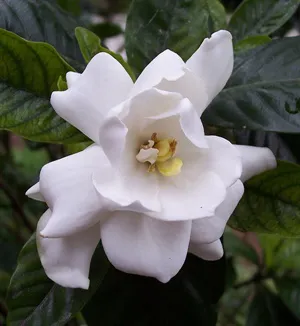
Dry Scalp Relief With At Home Recipes
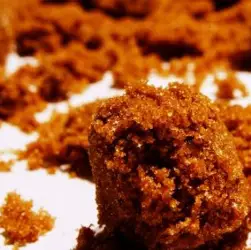 In my blog, HTML clipboard Combating Dry Scalps - Helpful Hints, I provide a list of possible causes and resolutions for combating dry scalp.
In my blog, HTML clipboard Combating Dry Scalps - Helpful Hints, I provide a list of possible causes and resolutions for combating dry scalp.
Of course when dry scalps become a persistent problem you should see your dermatologist or professional hair care expert to determine is there is a serious underlying reason for the issue.
(Image of Brown Sugar - Haap Media, LTD - All Rights Reserved)
Usually the key cause of dry scalp is changing weather, overuse of hair chemicals, hormonal imbalances, improper nutrition or even a reaction to certain prescribed medications.
Some women experience dry scalp during pregnancy and it can occur as a side effect of chemotherapy.
Naturally Curly, Wavy, Kinky Hair Dry Scalp Challenges
As I mentioned in the blog, Combating Dry Scalps - Helpful Hints, naturally curly, wavy and kinky hair may also have issues from time to time with a dry scalp due to the way their hair cuticle is formed and the tendency for their strands to naturally be very dry or moisture challenged.
Old Fashioned Apple Cider Vinegar
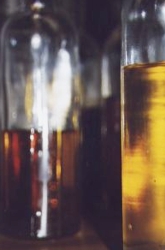 When I was researching the issue of dry scalps I talked to celebrity hairdresser Robert Hallowell, known as the Kitchen Beautician, because he often whips up formulas at home for his many celeb clients (Mary Louise Parker, Lucy Liu, Jennifer Love Hewitt, etc.,)
When I was researching the issue of dry scalps I talked to celebrity hairdresser Robert Hallowell, known as the Kitchen Beautician, because he often whips up formulas at home for his many celeb clients (Mary Louise Parker, Lucy Liu, Jennifer Love Hewitt, etc.,)
Where Would The Beauty World Be Without Apple Cider Vinegar?
One of the first recipes Robert suggested that would be easy to make at home was an Apple Cider Vinegar rinse.
Where would the hair world be without good old fashioned Apple Cider Vinegar (ACV). This miracle product has been around for many years as a hair and beauty aide. Why? Apple cider vinegar instantly lowers the pH of the scalp and the hair.
Apple Cider Vinegar rinses can be applied to any type, texture or length of hair. Of course I have to give the important disclaimer that not everyone will see benefits fro ACV rinses, but since you probably already have it in your home, what's the risk to try?
Robert pointed out anyone can apply a ACV rinse right after you have applied your shampoo, diluted shampoo or Conditioner Only (CO) cleansing formula but before you have applied your rinse-out conditioner.
Some hair consumers prefer to apply their ACV rinse after their final lukewarm water rinse, but before their final cool/cold water rinse.
It's basically up to each person to determine the very best time to apply the rinse. It's also possible to wet the hair in-between cleansing sessions and apply the ACV at that point. See what I mean? This is a very flexible treatment.
Does Apple Cider Vinegar Make Hair Naturally Shiny?
 Although there is controversy amongst hair experts whether the results of an ACV rinse will make hair shiny or not, there is little question that it can provide a soothing rinse for itchy or inflamed scalps. It can also help remove any shampoo residue. One of the common causes of dry scalps is shampoo residue left on the hair or scalp. It's actually easier to do than you think.
Although there is controversy amongst hair experts whether the results of an ACV rinse will make hair shiny or not, there is little question that it can provide a soothing rinse for itchy or inflamed scalps. It can also help remove any shampoo residue. One of the common causes of dry scalps is shampoo residue left on the hair or scalp. It's actually easier to do than you think.
Unless you completely douse your hair with water after a shampoo, especially if you use an undiluted formula, you may have areas of your hair and scalp with shampoo formula residue.
Apple Cider Vinegar Rinse
Acetic acid, the main ingredient in an ACV rinse will act as an instant clarifying agent removing product and toxin buildup from scalp and hair. It is also thought to strengthen the hair shaft, kill bacteria and often eliminate or minimize dandruff.
Note: Robert pointed out that an ACV Rinse is not recommended for color treated hair. Apple cider vinegar contains acetic acid which can strip color right off the hair. It is also important to note that apple cider vinegar is acidic. Do not use this rinse more than once a week. Another disclaimer is to always be careful to not get vinegar rinse in your eyes. It will burn.
Ingredients
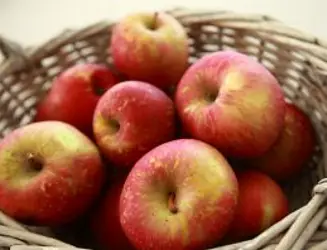 When possible use organic products in your scrub since you will be applying it to your scalp.
When possible use organic products in your scrub since you will be applying it to your scalp.
- 1/2 cup of apple cider vinegar
If your hair is longer or shorter adjust formula accordingly by cutting in half or doubling.
Directions
1. Mix the ACV with the quart of lukewarm distilled water. Put the mixture in a clean plastic container. Have a clean plastic bowl also available to catch the rinse as it drizzles down your scalp. You may wish to reuse the liquid more than once to get the best results.
2. Cleanse hair in lukewarm water in your normal manner using your desired cleansing formula (water only, straight shampoo, distilled shampoo, conditioner only).
3. Drizzle the apple cider vinegar rinse slowly over the top of your head onto the scalp, allowing the ACV rinse to drizzle down your strands. Use the clean plastic bowl to catch the drizzle. Continue pouring the liquid over your head until you have used the entire amount of ACV.
Note: Don't worry about the aroma. It will dissipate after hair dries.
3. Allow the ACV to soak into your hair as long as possible up to 10 minutes or more.
4. Rinse ACV from hair using cool or cold water to seal the hair shaft.
5. Optionally you may apply rinse-out conditioner and then finish with a cool rinse. It depends on the needs of your hair from the ears down. Experiment to get the best treatment mix for your tresses.
6. Towel blot hair with an absorbent towel. Do not rub.
Apply leave-in conditioners as needed. Allow hair to air-dry when possible.
Brown Sugar Scrub Mask
Robert Hallowell also suggested the application of a good old fashioned brown sugar mask. He explained it is another dry scalp at-home recipe which offers relief for many. This cross between a scrub and mask helps to eliminate dry flakes from the scalp.
Ingredients
When possible use organic products in your scrub since you will be applying it to your scalp.
- 2-4 tablespoons Extra Virgin Olive Oil (make sure it is not rancid and has been stored properly)
1. Mix olive oil and brown sugar until it forms a paste. Part entire head into equal sized sections. Add more oil if the mixture does not form an initial paste.
2. Pat the scrub to the entire scalp with your fingertips.
3. Using the pads of your fingers massage the paste into your scalp spending more time on the most flaky or itchy sections.
4. Rinse scrub from hair using cool or cold water to seal the hair shaft. Optionally you may apply a rinse-out conditioner after removing the scrub but before the final rinse.
5. Towel blot hair with an absorbent towel. Do not rub.
6. Apply leave-in conditioners as needed. Allow hair to air-dry when possible.
Other Options
Rinse scrub out of hair with lukewarm water which also helps remove flakes.
Optionally you may wish to do your normal cleansing routine (shampoo, diluted shampoo, conditioner only or water only rinse) at this time.
Lemon Juice Rinse
Lemon juice squeezed from real lemons is another formula which can be used to cure dry scalp and can be found in your refrigerator. Lemon juice, in many cases, will clear up dry scalp and will cleanse the scalp of dry flakes.
Lemons naturally contain the equivalent of alpha-hydroxy acids. As a result lemons act as a gentle exfoliant for the scalp.
Some beauty experts believe the key to a healthy scalp is to exfoliate and that even the driest scalps can benefit from a lemon juice application. Why? A little acidic lemon can help maintain the skin's proper pH level, and restore its natural lipid barrier.
Depending on the condition of your scalp you may or may not wish to try this treatment. If you do try it, apply to a small test area first before spreading it on the entire scalp.
Note: Do not use this treatment on colored, highlighted or lowlighted hair as the acidity of the lemon may strip the color for your strands.
Ingredients
- Juice squeezed from 1 or 2 lemons - depending on how much scalp you wish to cover
1. Mix lemon juice and water together
2. Part entire head into equal sized sections.
3. Pat the lemon rinse onto the entire scalp using clean and sterile cotton balls. Using the pads of your fingers massage the paste into your scalp spending more time on the most flaky or itchy sections.
4. Leave the lemon juice mixture on the scalp for up to 20 minutes. The lemon juice will not lighten your hair, contrary to some old wive's tales.
4. Rinse lemon mixture from hair using cool or cold water to seal the hair shaft. Optionally you may apply a rinse-out conditioner after removing the scrub but before the final rinse.
5. Towel blot hair with an absorbent towel. Do not rub.
6. Apply leave-in conditioners as needed. Allow hair to air-dry when possible.
More Information
Please follow me on Twitter at: http://Twitter.com/HairBoutique. I look forward to meeting new people from all walks of Twitter and learning from their Tweets. Visit us at Hairboutique.com located at: http://www.HairBoutique.com, on Facebook, MySpace and YouTube.
Thank you for visiting us at The HairBoutique Blog and for leaving your comments. They are very much appreciated. We apologize in advance but must remove any direct advertisements or solicitations.
Social Media Network Information
Please follow us on Twitter at: https://Twitter.com/HairBoutique. I look forward to meeting new people from all walks of Twitter and learning from their Tweets.


